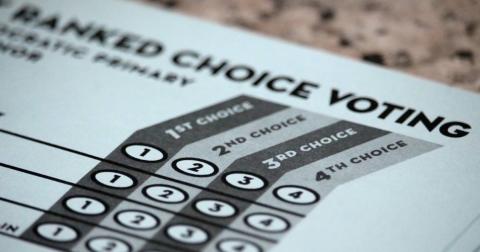The momentum powering the ranked choice voting movement doesn’t appear to be slowing down. Along with being used in a record number of cities in 2021, voters in 3 additional cities approved its use in future elections.
Thirty-two cities across 7 states (DE, MA, ME, MI, MN, NM, and UT) used ranked choice voting for their November 2 elections. Twenty-two of those cities used the alternative voting method for the first time, most of which were located in Utah.
It is important to note that there is a possibility that many of the Utah cities that used ranked choice voting in 2021 may not continue to use it in future elections. Most of the cities approved its use for this year’s elections only and will have to approve it again if they want to continue to use it.
To recap, ranked choice voting is a voting method that allows voters to rank candidates in order of preference (1st choice, 2nd choice, 3rd choice, etc.). The voting method removes the need for a separate runoff election by conducting automatic rounds of runoff should no candidate get 50%+1 of first choices. In each round, the last place candidate is eliminated and their voters’ next choice is applied to the results. The process continues until there is a majority winner.
New York City elected its second Black mayor Tuesday along with its first female-majority city council after using ranked choice voting for the first time in its June primary. Virginia Republicans, who were nominated during the state’s first-ever RCV Republican convention, also swept statewide races for governor, lieutenant governor, and attorney general.
In all of the instances in which RCV was used ahead of the November election to decide general election candidates, voters who used the alternative voting method largely expressed satisfaction with it and said they wanted to continue to use it going forward.
The historic election was not just about how many cities used ranked choice voting. Three more cities adopted its use in local elections going forward -- Broomfield, CO, Westbrook, ME, and Ann Arbor, MI. This is 13 straight victories for ranked choice voting at the ballot box, including Austin, Texas, and Burlington, Vermont, both of which adopted ranked choice voting earlier this year.
Further analysis of ranked choice voting on Election Day will be provided by the nonpartisan group, FairVote, on Thursday, November 4, at 11 AM eastern during a national press call. FairVote is the nation’s preeminent advocacy for ranked choice voting and other better elections efforts like the Fair Representation Act.
There is no doubt ranked choice voting is the fastest growing nonpartisan election reform in the US. It is used in a total of 50 jurisdictions, including two states (Alaska and Maine), with nearly 10 million voters, and its popularity continues to grow across the political spectrum.
